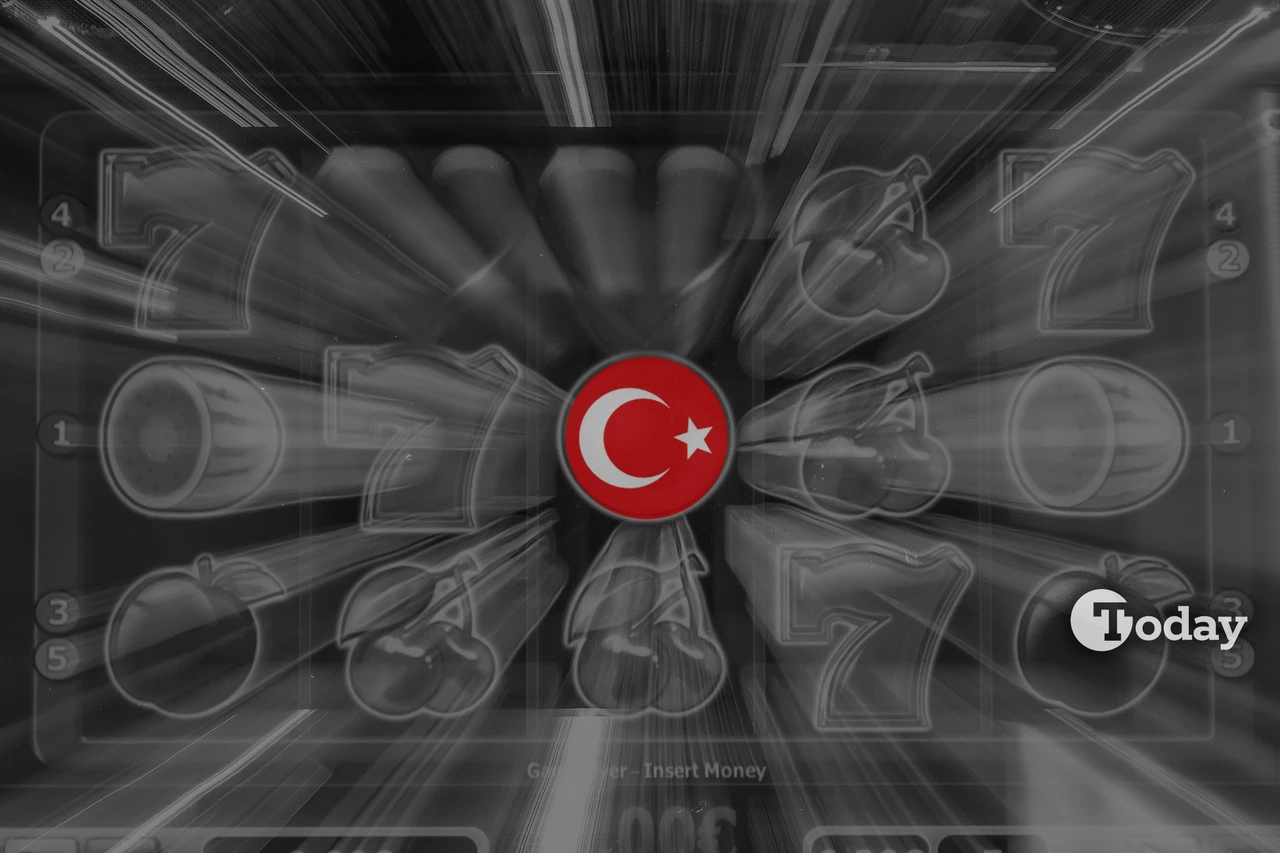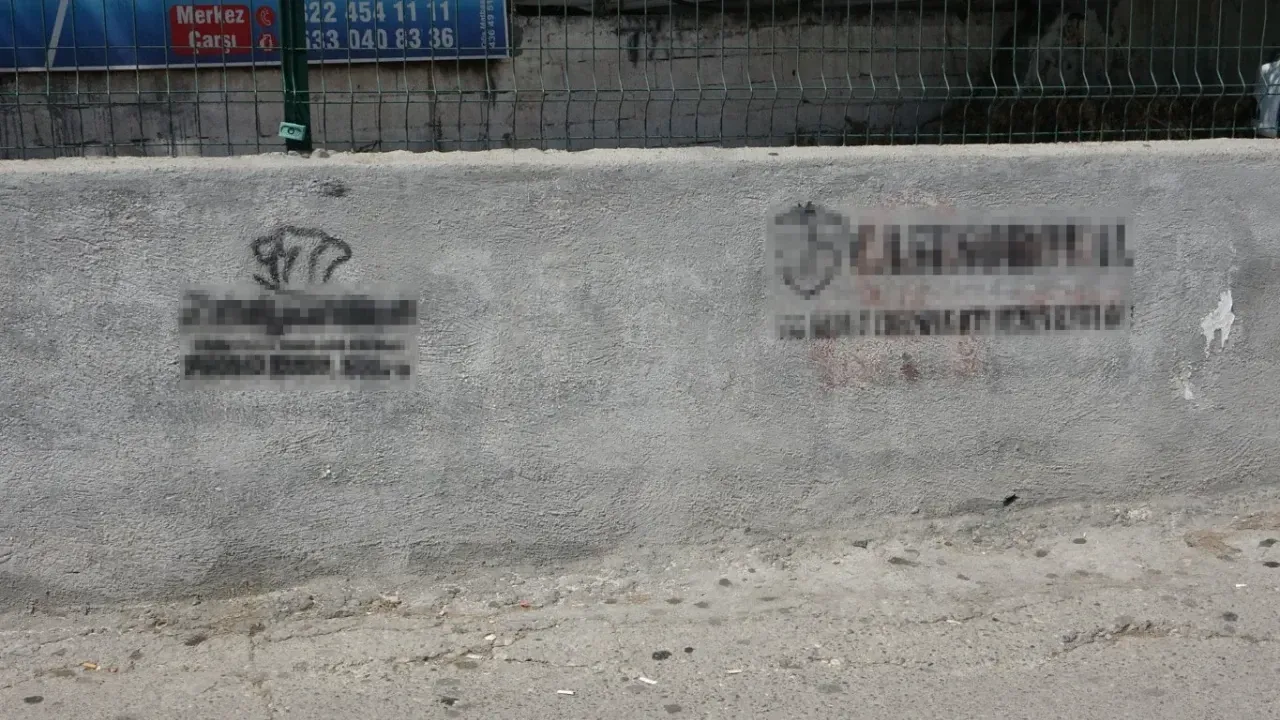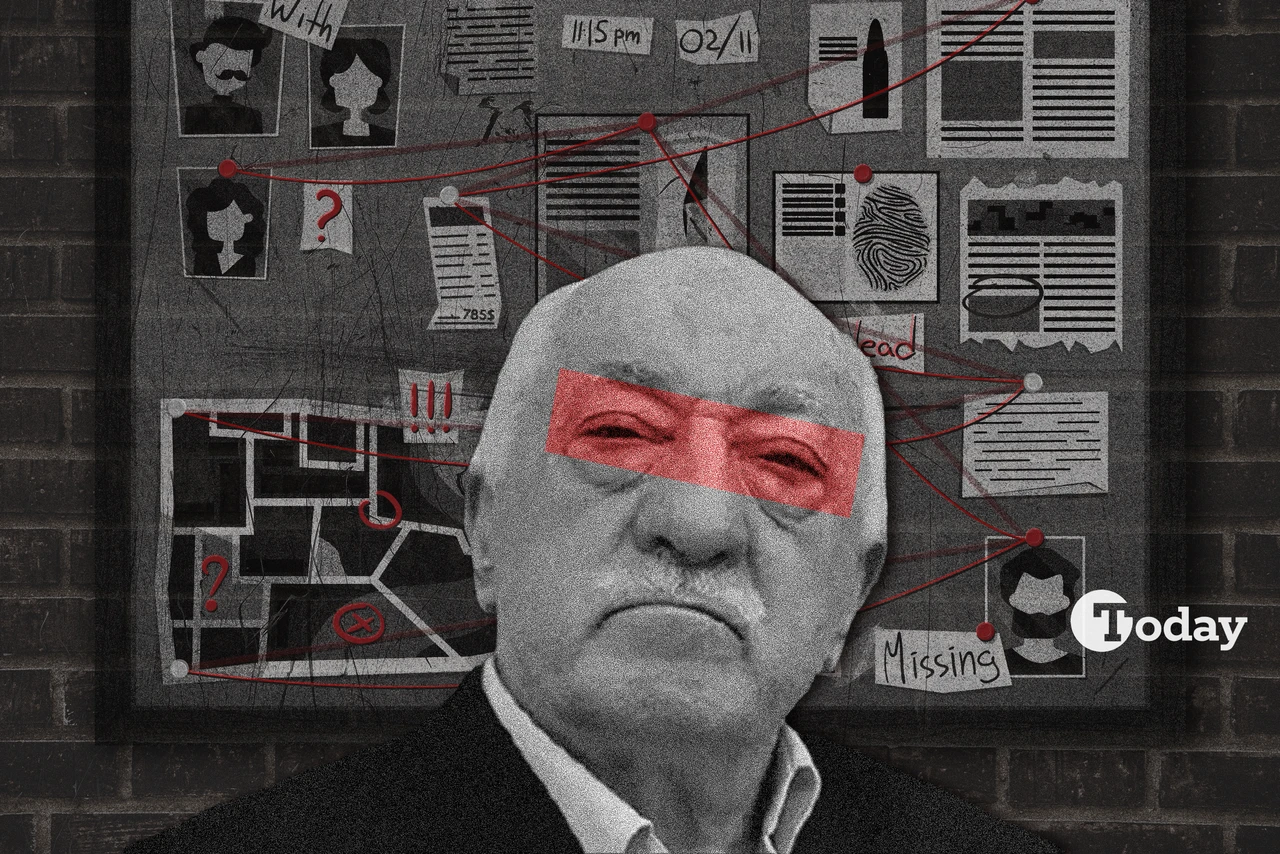How Türkiye is tackling growing issue of illegal betting
 (Collage by Mehmet Akbas/Türkiye Today)
(Collage by Mehmet Akbas/Türkiye Today)
In the latest operations, Istanbul Chief Public Prosecutor’s Office have targeted illegal betting organizations operating on social media platforms. The move comes as authorities grapple with the increasing prevalence of unregistered gambling activities, which pose a significant threat to Türkiye’s economy and its citizens.
This crackdown highlights the global nature of online gambling and the challenges in combating international financial crime.
What does ‘illegal betting’ mean in Türkiye?
Betting and games of chance are often linked to illegal activities, such as money laundering, tax evasion and the financing of organized crime and terrorist organizations. For this reason, many countries have introduced legal regulations to restrict betting and gambling activities, imposing severe penalties for violations.
In Türkiye, betting is subject to strict regulations, with only licensed companies permitted to organize betting and games of chance determined under Law No. 7258. Legal betting refers to activities that are conducted under government-issued licenses under the law, ensuring compliance with financial, operational and ethical standards.
Any betting activity that operates outside the scope of Turkish gambling laws, even if licensed elsewhere, is considered illegal within Turkish jurisdiction.
Under Article 5 of Law No. 7258, the following penalties apply to illegal betting activities in Türkiye:
- Individuals who facilitate or organize illegal betting or gambling, including providing venues or opportunities for such activities, can face imprisonment ranging from three to five years, along with daily judicial fines of up to 10,000 consecutive days.
- Those who enable participation in betting or gambling activities organized abroad by providing access via the internet or other means in Türkiye can be sentenced to four to six years in prison.
- Individuals involved in facilitating the transfer of money for illegal betting or gambling can face imprisonment of three to five years, as well as daily judicial fines of up to 5,000 consecutive days.
- Those who encourage others to participate in illegal betting or gambling can be sentenced to one to three years in prison, along with daily judicial fines of up to 3,000 consecutive days.
Dark side of illegal betting, risks involved
- Financial danger: Many people are drawn to illegal betting as they fall victim to deceptive promotional campaigns in hopes of making a quick buck. Unfortunately, these individuals often find themselves in significant financial trouble as they engage in high-risk betting, lured by manipulated special offers.
- Mental disorders: Illegal betting platforms, with their unregulated nature and diverse range of games, can exacerbate gambling addiction, especially for individuals with underlying mental health conditions.
- Without proper regulation and support systems, addiction is harder to control, leading to devastating social and personal consequences. The financial strain and emotional turmoil associated with gambling addiction can contribute to anxiety, depression and social isolation.
- Criminal networks and exploitation: Illegal betting is often operated by organized crime networks including terrorist organizations, drug smugglers, or mafia groups. These criminal organizations exploit bettors, destabilize communities, and launder money through these illicit activities.
- Using personal bank accounts for payments can raise red flags for law enforcement, leading to potential investigations. Furthermore, individuals who fail to repay their debts to these criminal groups may face severe consequences, including threats and coercion.
- Lack of consumer protection: Unlike legal, regulated betting platforms, illegal betting offers no consumer protection. There is no recourse for bettors who are cheated or who experience unfair practices, leading to further financial risks.
- Many illegal betting sites do not guarantee payouts to winners. Even if a bettor wins a substantial amount, there is no legal obligation for the site to pay them. It is common for illegal platforms to delay, reduce, or outright withhold winnings, and bettors have no legal course to recover their money.
- No data privacy: Some illegal betting networks might sell collected data to other criminal organizations or third parties, increasing the risk of phishing, spam and targeted fraud. Betting networks often track users’ online behavior to target them with personalized promotions and exploit vulnerabilities.
- This lack of privacy can lead to further risks, as these networks may use spyware to collect more personal data, compromising users’ online security. Personal information obtained through these platforms can be used to create fake accounts, apply for loans, or engage in fraudulent activities, which could have long-term effects on a person’s financial and legal standing.
Curacao and Malta licences pave the way
Many illegal betting organizations, primarily targeting Turkish users, disguise their operations by claiming to be based abroad. These organizations often register in tax havens like Curacao and Malta, known for their lax regulations. These jurisdictions allow anyone to register financial accounts with minimal scrutiny, regardless of the source of funds. Therefore, they readily obtain licenses from these countries’ authorities and are recognized as legitimate international corporations. This official status enables them to sustain their operations, including sponsoring prestigious events like UEFA competitions.
These countries with loose regulations then allow for illegal gambling networks to launder money easily, using loaned bank accounts, cryptocurrency and shell companies.
The Financial Crimes Investigation Board (MASAK) data indicates:
- Over 280,000 bank accounts were used for illegal betting collections between 2022 and 2024, with funds funneled to criminal organizations. MASAK uncovered the extensive use of these accounts for such purposes and forwarded information about the individuals involved to judicial authorities.
- As part of this effort, over a million payment and e-money accounts linked to illegal betting and gambling sites were identified.
- More than 3,000 virtual points of sales systems (POS) used for illegal betting collections have been shut down. Authorities also closed a shell company identified as a crypto asset service provider, which was established to convert funds from these transactions into cryptocurrency. The matter has been referred to judicial authorities.
Difficulty preventing marketing strategies
Illegal betting organizations are pervasive, operating both online and offline. Social media accounts, particularly those focused on football, are rife with illegal website links and watermarks, reaching millions of potential customers.
Additionally, street walls, especially near public transportation hubs, are often adorned with logos and slogans promoting these illegal operations. Even national TV channels frequently fail to censor billboards displaying illegal betting advertisements during football matches.


Fenerbahce Vice President Acun Ilicali, also the owner of the digital platform EXXEN and the national channel TV8, has faced significant criticism for the apparent promotion of illegal betting during live UEFA tournaments. Ilicali recently defended himself, claiming that it is technically impossible to hide these promotions during live streams, as the signal is received externally from foreign service providers. He asserted that neither TV8 nor EXXEN are directly involved in the placement of these advertisements.
Recently, Galatasaray also faced a similar controversy when one of its sponsors, posing as a legitimate hotel chain, was revealed to be linked to an illegal betting organization. Following public outcry, Galatasaray terminated the two-year, $7 million per year sponsorship deal.

Latest social media network investigations include celebrities
On Nov. 11, the Istanbul Chief Public Prosecutor’s Office issued arrest warrants for 23 individuals as part of an investigation into a social media network. Among those targeted were well-known influencers and celebrities such as Batuhan Karadeniz, Mehmet Ali Erbil and Serdar Ortac.
Suspects were accused of promoting illegal betting through social media. Some 16 suspects face charges of advertising and promoting illegal betting, 12 were kept in custody, while two minors were released under judicial supervision. While Erbil and Ortac were placed under house arrest, Batuhan Karadeniz has been identified as a fugitive abroad.
Justice Minister Yilmaz Tunc stated the investigations are still ongoing. Further operations and detentions are anticipated as law enforcement continues to track and identify individuals and organizations involved in these illicit activities.
Thousands of websites banned, but still accessible
According to a statement from the Interior Ministry, between September 2023 and August 2024, 2,880 operations were conducted against illegal bookmakers, resulting in:
- Out of the total 9,535 detained individuals, 4,381 suspects have been jailed
- ₺7.5 billion ($218.8 million) were confiscated
- Access to 67,493 illegal betting websites has been restricted
The National Lottery Administration (MPI) identifies websites hosting unauthorized gambling and betting activities online, reporting them to the Information and Communication Technologies Authority (BTK). Last year, 168,030 sites were flagged, while from January to September this year, 183,260 sites were identified and reported for access restrictions.
An average of 20,000 sites per month have been subjected to preventative measures this year. Of the sites blocked in the first nine months, 98,000 were based in the U.S., 32,000 originated from Armenia, and 12,000 from the Netherlands.
Since the strengthening of legislation on illegal gambling in 2006, a total of 422,594 sites have been reported, with access restrictions imposed on 393,013 of them.



